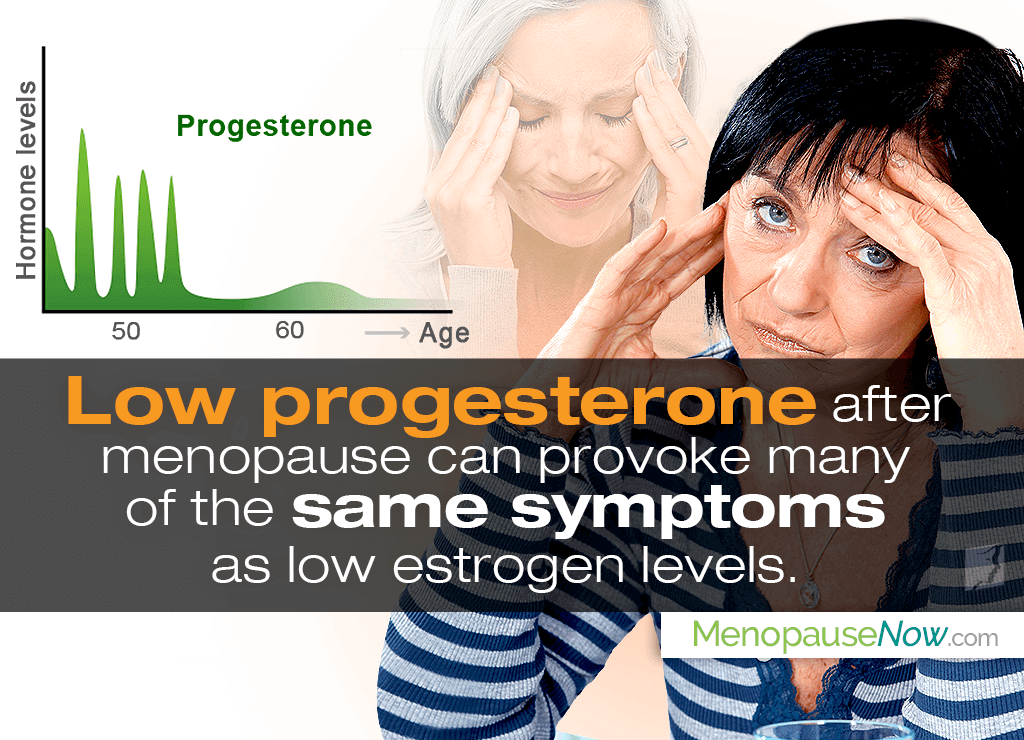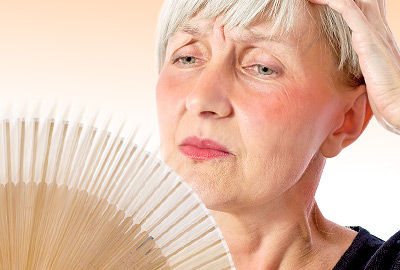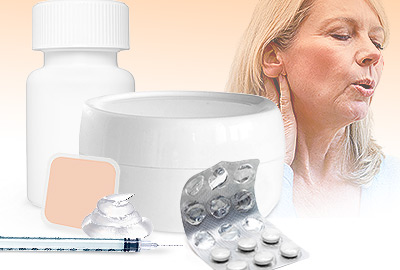Reproductive hormones, like progesterone, play just as integral of a role in women's well-being after menopause as they do before, making it that much more important for women to monitor their levels as they sail into their twilight years.
Keep reading to learn all about low progesterone after menopause, including how progesterone production shifts, symptoms of low levels, treatment options, and more.
Progesterone Production after Menopause
Throughout women's reproductive lives, progesterone is produced largely in the ovaries during the second half of the menstrual cycle, as what remains of a follicle after ovulation secretes the hormone.
When ovarian functions wind down as women approach menopause, anovulatory cycles - cycles without ovulation - ensue, resulting in decreased progesterone production in the ovaries.
Although progesterone continues being produced in peripheral nerves and the adrenal glands, among other organs, its levels are at an all-time low in comparison to premenopausal levels.
Progesterone Benefits after Menopause
One of the most important roles of progesterone throughout all life stages, including menopause, is to counteract the effects of estrogen.
Because estrogen and progesterone work in tandem with one another, when progesterone is low, estrogen levels can increase uninhibitedly, which can lead to long-term health conditions such as breast cancer, endometriosis, PCOS, and more.
Also, a relatively recent study found that healthy progesterone levels in early postmenopausal women not on HRT were associated with better memory and global cognition, while no significant difference was found with estrogen.1
While these new findings need validation, as they do not endorse earlier findings suggesting estrogen plays a strong role in postmenopausal cognition, they make for an important opportunity for further investigation.
Symptoms of Low Progesterone after Menopause
Low progesterone after menopause can provoke many of the same symptoms as low estrogen levels can. They include:
It is key that women run proper diagnostic tests with their doctors in order to pinpoint the real cause behind their symptoms. Only once the underlying cause is found can true relief be had.
How to Treat Low Progesterone Levels
Symptoms caused by low progesterone levels after menopause are often relieved with hormone replacement therapy (HRT), an option of which are progesterone creams. However, many women are now searching for more natural alternatives to avoid potential side effects of HRT.
Natural and effective treatment methods to increase low progesterone during the menopause transition - and after - begin with non-risky lifestyle changes and are complemented with alternative medicine. Some initiatives include:
- Consuming a diet rich in vitamins B and C
- Exercising regularly for a healthy weight
- Practicing stress-relief techniques
- Taking herbal progesterone or hormone-regulating supplements
Keep in mind that treatment for low progesterone after menopause is universal across the transition - perimenopause through postmenopause - since the underlying objective is always to elevate levels enough for symptom relief.
Key Takeaways
While levels of progesterone after menopause do decrease to almost nil as ovarian hormone production ceases, the hormone continues to be of use in the body, especially to counteract the effects of estrogen as well as preserve cognition. Depression, anxiety, mood swings, and headaches are all symptoms that should be taken to a doctor for further testing to determine if they signify low progesterone levels so that women can finally take action to treat the imbalance. They should first start with non-risky options of lifestyle changes and alternative medicine before considering more risky options, like HRT. With a little initiative, it is possible to recover one's prior symptom-free quality of life.
Sources
- The American Association of Naturopathic Physicians. Estrogen Dominance: Too Much of a Good Thing Can Certainly Be BAD! Retrieved September 24, 2019, from https://www.naturopathic.org/content.asp?contentid=401
- Dalal, P.K. & Agarwal, M. (2015). Postmenopausal syndrome. Indian Journal of Psychiatry, 57(Suppl 2), S222-S232. doi: 10.4103/0019-5545.161483
- Edlefsen, K.L. et al. (2010). The effects of postmenopausal hormone therapy on serum estrogen, progesterone and sex hormone binding globulin levels in healthy post-menopausal women. Menopause, 17(3), 622-629. doi: 10.1097/gme.0b013e3181cb49e9
- Healthy Women. (n.d.). Low Progesterone Symptoms. Retrieved September 24, 2019, from https://www.healthywomen.org/content/article/low-progesterone-symptoms
- The North American Menopause Society. (2010). Changes in Hormone Levels. Retrieved September 24, 2019, from https://www.menopause.org/for-women/sexual-health-menopause-online/changes-at-midlife/changes-in-hormone-levels
- Regidor, P.A. (2014). Progesterone in Peri- and Postmenopause: A Review. Geburtshilfe und Frauenheilkunde, 74(11), 995-1002. doi: 10.1055/s-0034-1383297
Footnotes:
- Henderson, V.W. et al. (2013). Cognition, mood, and physiological concentrations of sex hormones in the early and late menopause. PNAS, 2013. doi: 10.1073/pnas.1312353110




